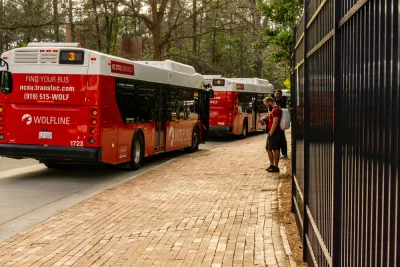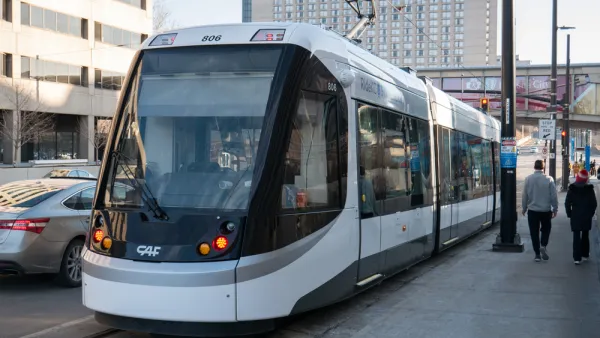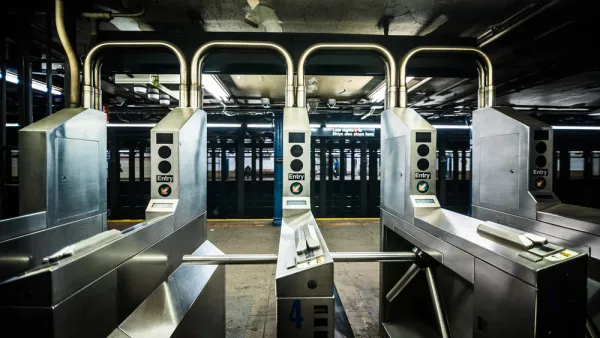The pandemic has provided a proving ground for fare-free transit in cities all over the country. For some cities, it might make fiscal sense for these experiments to be made permanent.

Jake Blumgart reports from Raleigh, North Carolina, where the Covid-19 pandemic has helped advocates for fare-free transit win some political victories for their cause.
The article starts with the example of David Meeker, who before the pandemic estimated that it could take four or five years to pull off a fare-free transit campaign.
"But as COVID-19 swept over the country, the City Council acted quickly to scrap payments for bus riders. That would allow all-door boarding — minimizing interaction with the driver — and it would be a boon for beleaguered essential workers who still had to report to work," explains Blumgart. "In 2021, the City Council has extended the pandemic-era fare-free norm for another budget year. For Meeker and his allies, both in and out of government, this feels like the moment to lock in this policy change."
According to Blumgart, the fare-free proposition is different in a city like Raleigh, where 2 million people rode transit in 2019, than it would be in, for example, New York City or Washington, D.C. "[I]n 2019, the cost of running Raleigh’s bus network was over $31 million with fare revenues only coming to $3.4 million. When the amount spent on collecting that revenue is considered — paying people to collect and move large amounts of physical money — the actual amount is even less," explains Blumgart.
FULL STORY: Raleigh Pushes for Permanent Fare-Free Transit

Analysis: Cybertruck Fatality Rate Far Exceeds That of Ford Pinto
The Tesla Cybertruck was recalled seven times last year.

National Parks Layoffs Will Cause Communities to Lose Billions
Thousands of essential park workers were laid off this week, just before the busy spring break season.

Retro-silient?: America’s First “Eco-burb,” The Woodlands Turns 50
A master-planned community north of Houston offers lessons on green infrastructure and resilient design, but falls short of its founder’s lofty affordability and walkability goals.

Test News Post 1
This is a summary

Analysis: Cybertruck Fatality Rate Far Exceeds That of Ford Pinto
The Tesla Cybertruck was recalled seven times last year.

Test News Headline 46
Test for the image on the front page.
Urban Design for Planners 1: Software Tools
This six-course series explores essential urban design concepts using open source software and equips planners with the tools they need to participate fully in the urban design process.
Planning for Universal Design
Learn the tools for implementing Universal Design in planning regulations.
EMC Planning Group, Inc.
Planetizen
Planetizen
Mpact (formerly Rail~Volution)
Great Falls Development Authority, Inc.
HUDs Office of Policy Development and Research
NYU Wagner Graduate School of Public Service




























